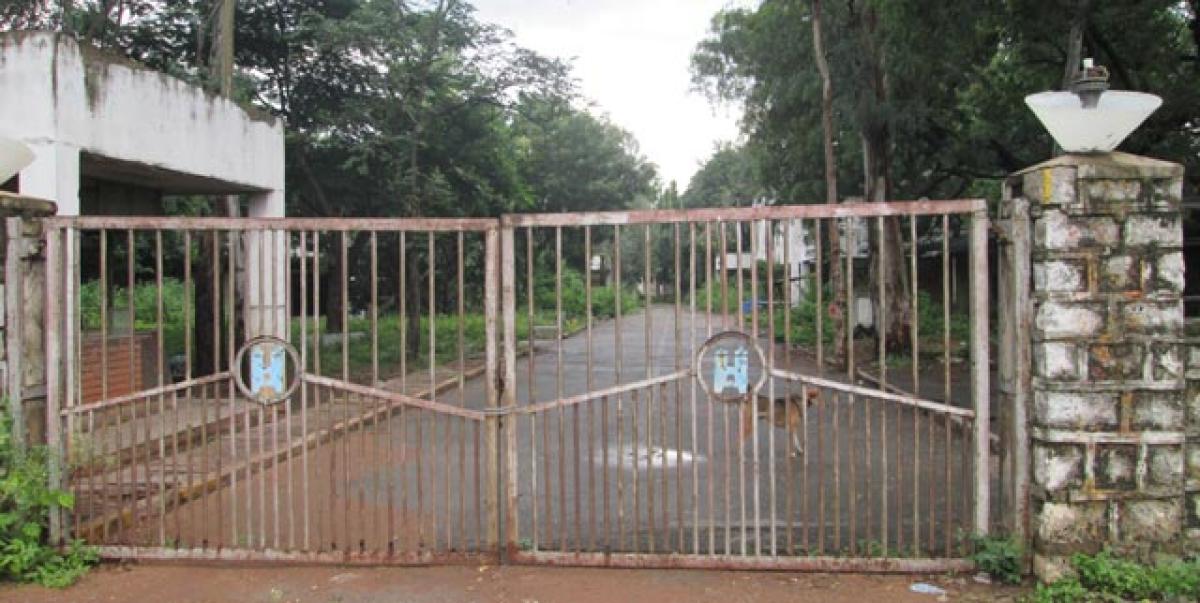Live
- KJo on 23 years of ‘Kabhi Khushi Kabhie Gham’: One of those pinch me moments
- WPL 2025 auction: Nandini, Kamalini set to be most sought-after names
- MP CM to inaugurate Sarsi resort in Shahdol, 200-bed hospital in Mauganj today
- TGPSC makes arrangements for Group-2 exams to be held tomorrow
- WPL 2025 Auction: When and where to watch, date, time, live streaming, venue
- Japan: Citizens protest US military-related sexual violence
- Buy on dips strategy working well in Indian stock market amid sharp rebound
- Sri Lanka concludes sovereign bond restructuring
- Lal Krishna Advani hospitalised at Delhi's Apollo Hospital
- Modi performs puja at Triveni
Just In

It was a very young work force with most of them in their 20s and 30s. About 3000 neatly dressed workers capable of handling the most technical of the jobs which go into the manufacture of one of the best watches in India.
Sangareddy: It was a very young work force with most of them in their 20s and 30s. About 3000 neatly dressed workers capable of handling the most technical of the jobs which go into the manufacture of one of the best watches in India. It was life as usual for them for almost 15 years of their service, when the closure of Allwyn Watches Ltd, one of the divisions of Hyderabad Allwyn Limited; turned their lives upside down.
Almost 16 years after the shut-down of the public sector undertaking, memories of the workers are still intact, as seen from a sudden excitement in the voice of Suhasini, one of the several chemical treatment commercial staff, who is now 54 years old and has been a home maker after the shut down.
Her work was to make plating for components. She explained how the jewel-fixing machine worked and how every desk used to have microscopes and the super-fine tools they used for handling components. “Recently the entire furniture and equipment was sold right outside the factory like scrap. That equipment went into making high standard watches which even work until today,” she said, reminiscing old times.
Her husband, who also worked in Allwyn had left to Dubai after the closure. He has been working abroad ever since, ensuring the family didn’t go bankrupt. She lives in Allwyn colony in Patancheru, built by a society formed by the members of INTUC. Similar colonies were built in Miyapur and JNTU by other worker unions as well.
Of the 316 houses built in Allwyn colony, only 35-40 families now live here, as many of them had sold away their property after the closure. Allwyn watches had 2800 workers, out of which 1200 were women. Reservations ensured employment to SC, ST, BCs and minorities as well. The company had played a major role in empowering women into joining work force, at a time when women were mostly restricted to their homes (in 1980s, when the company was started).
Many of the workers had no option but to take voluntary retirement and move on with their lives with whatever they received from the company. But 130 workers didn’t accept and went to court on the basis of Industrial Disputes Act. Despite orders from the High Court that the petitioners be given consequential benefits and award of a decree later on to that effect; no settlement has been reached till date. Khaja, another worker in quality control section worked odd jobs to earn his livelihood and has had an economically unstable life since the closure.
Though some workers pursued law and are now practicing in the courts of Sangareddy and Miyapur, many of them couldn’t survive the effect of the shut-down. Those who were active in union politics either grew politically or managed to get into some kind of mediator businesses. But many of them suffered irreparable losses at the height of their career. Allwyn watches wasn’t the only division to close down.
One by one, all the divisions including the coach building and refrigeration and appliance division were shut down, impacting the lives of 10,500 workers across erstwhile Andhra Pradesh. Apart from watches, Allwyn manufactured the coaches for double-decker buses, the bodies for Army’s Shaktiman trucks, Pushak scooters and refrigerators to name a few.
Recenty, the company’s premises have been taken-over by National Minerals Development Corporation. Some say there was a political motive behind the closure, some say it was lack of diversification, inefficient marketing, and an inability to face market competition and increase in labour cost and decrease in production.
Though the reasons could be many, the fact remains, that thousands of highly skilled workers were deskilled as a result of poor management of a public sector undertaking, derailing the otherwise stable career of thousands. This kind of shut down of companies still continues, even after the formation of Telangana, as could be seen in the case of more than 30 manufacturing units closed down in Medak in the past couple of years.
By Vivek Bhoomi

© 2024 Hyderabad Media House Limited/The Hans India. All rights reserved. Powered by hocalwire.com







